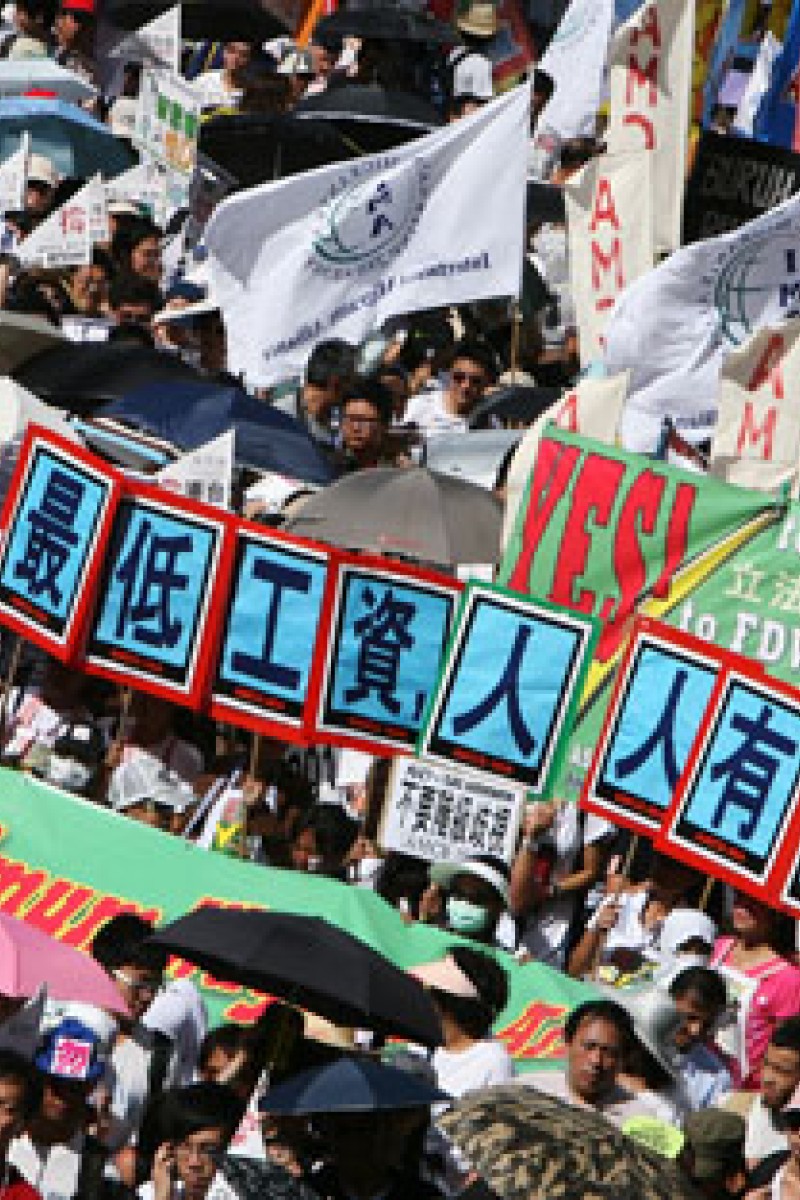
 iii
iii
| By Eric Lam King-fai, The Hong Kong Polytechnic University |
Is a riot going to break out in Hong Kong? Research by the Hong Kong Institute of Asia-Pacific Studies of the Chinese University of Hong, shows 25 per cent of adults in the city (about 1.5 million people), sympathise with the use of 'radical means' to force a response from the government to their needs. Perhaps a riot is not far away. Premier Wen Jia-bao last year lectured Chief Executive Donald Tsang Yam-kuen on the five conflicts affecting the nation. How should the government respond to these conflicts? The introduction of a minimum wage may be one solution to Hong Kong's rich-poor gap.
That gap is widening, as illustrated by the city's increasing Gini coefficient of 0.533 measured in 2006. That makes Hong Kong's wealth inequality the second highest among developed countries or jurisdictions. The Gini coefficient is a measure of income or wealth inequality. It ranges from 0 to 1 and a low figure indicates a more equal wealth distribution within a society. Although the city's overall GDP grew from 1996-2006, salaries of the lowest-paid 30 per cent of workers decreased relatively. Against this backdrop, the government is considering a minimum wage. Employers are resisting its introduction with some saying it violates the principles of a free economy, others that it could cause unemployment and breed laziness. But they have missed one point: the role of government.
Those who say a minimum wage will skew the market must understand that the market is not a perfect system and its movements are not always rational. The government must step in occasionally. A minimum wage of HK$24 an hour, as recently suggested by catering legislator Tommy Cheung Yu-yan, would result in this scenario: two people with one child toiling for 10 hours a day, 25 days a month would earn HK$12,000 a month. They may be happy to make do with monthly welfare entitlements of about HK$7,600 instead. A minimum wage mostly benefits low-wage earners in labour-intensive jobs who often cannot be replaced by technology easily, so concerns about cost-cuts and unemployment are not as dire as some lawmakers say. Let's hope there's a minimum wage soon.
<!--//--><![CDATA[// ><!-- PDRTJS_settings_1853229 = { "id" : "1853229", "unique_id" : "default", "title" : "", "permalink" : "" }; //--><!]]>